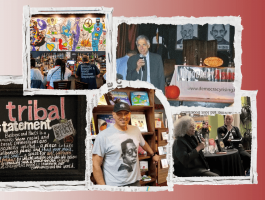
A Seat at the Table: The Making of Busboys and Poets
We’re proud to announce A Seat at the Table: The Making of Busboys and Poets, the new memoir from our CEO and Founder, which reveals the vision, challenges, and triumphs behind opening Busboys and Poets. Packed with misadventures, unexpected triumphs, and insights on race, business and politics, Andy Shallal’s memoir takes us on a “How I Built … Continued
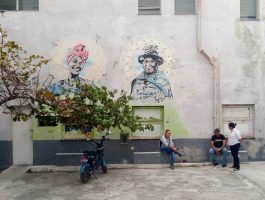
For Langston Hughes on His 123 Birthday
Speech given on February 1, 2024 in Havana, Cuba In 1927 Langston Hughes walked into a Cuba amid an emerging community of artists, intellectuals, and radicals. He saw a “sunrise in a new land [– a day – in his words]sic – full of brownskin surprises, and hitherto unknown contacts in a world of color.” … Continued
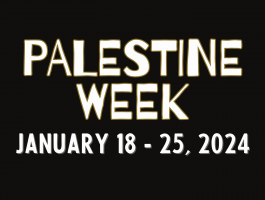
Palestine Week 2024
January 18, 2024 – January 25, 2024 In keeping with our ongoing mission of uplifting racial and cultural connections, Busboys and Poets is hosting Palestine Week (January 18 through January 25, 2024). This week-long series of events will offer a diverse range of programming featuring Palestinian food, music, dance, poetry, discussions, and other enriching events. … Continued
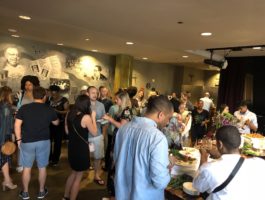
DC VegFest Media Party at Takoma
We kicked off another year of DC VegFest by hosting the media party in the Guillén Room at Takoma to about 60 local and national influencers. For the last four years we’ve sponsored DC VegFest and have provided an overflowing buffet of various vegan foods from our catering and regular menu, like vegan “beef” sliders, … Continued
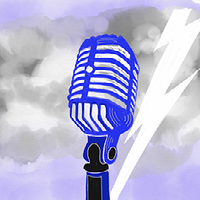
10 Year Anniversary Party
Early reception sold out but general admission tickets still available!
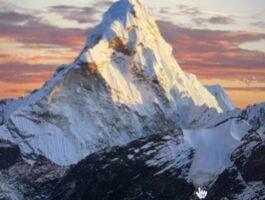
The Nepal Chronicles #5
Thursday, March 5, 2021… I have some time to kill before dinner tonight. So I venture into the narrow uneven streets of Thamel. The area is known for its shops carrying trinkets for budding Buddhists as well as trekking gear for hopeful trekkers. You can find a dream catcher or a meditation bowl or Tibetan … Continued
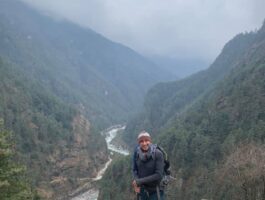
Everest Base Camp #16
Holy tea on top of the mountain I am awake and somewhat refreshed and ready to take on today’s challenge. Big climbs don’t stress me out. Not anymore. I have a new menace. Lack of oxygen. Today this menace will be tested. On the way to Dengboche. At 14,500 feet. I am sitting with Dawa … Continued